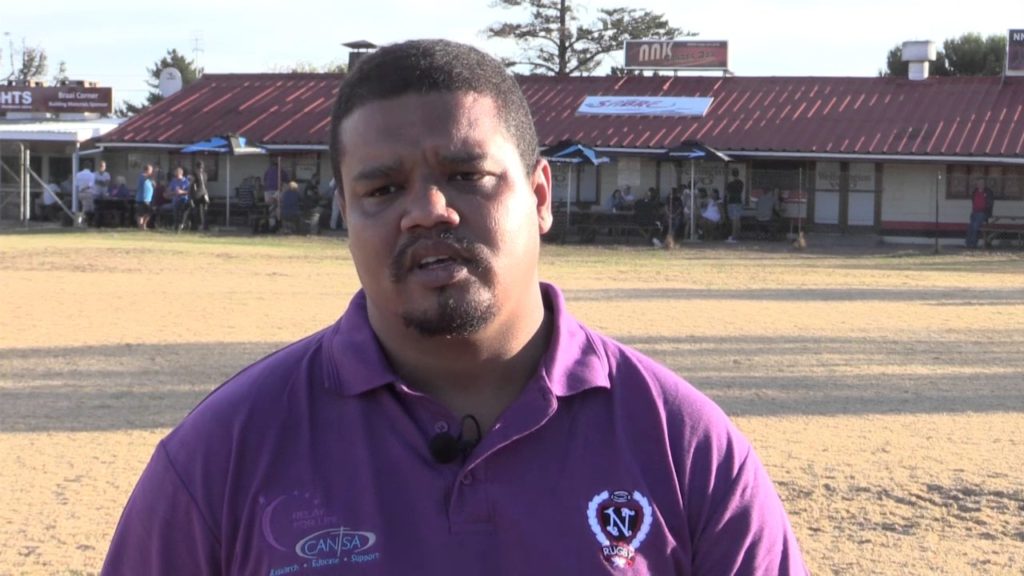Sports coaching specialist Dr Wilbur Kraak has highlighted his concern over the pressures that black schoolboy rugby players face in the current system, writes DYLAN JACK.
Kraak was speaking to SA Rugby magazine for a feature looking at how South African high schools have incorporated elements of the professional game into their rugby programmes and whether this is in the best interests of the country’s schoolboys.
One of the major issues that Kraak raised was over how South Africa’s bigger rugby schools conduct their recruitment and whether it was always done for the best of schoolboys. Over the past few years, questions have been raised about the trend of targeting specifically black or coloured boys from disadvantaged areas and moving them so far from their parents.
For every Siya Kolisi and Embrose Papier – who have both succeeded after earning bursaries to attend Grey High and Garsfontein High, respectively – there are many more black and coloured schoolboys who struggle to deal with the pressures that come with living so far away from their families.
ALSO READ: Overage scandal hits KZN school
Kraak questioned whether schools who recruit schoolboys from disadvantaged areas and bring them into different provinces are doing so for the right reasons – if those schools really have an intention to develop those schoolboys holistically or are doing so for their own benefit.
‘The other issue I have is especially looking at boys of colour being recruited from the Western and Eastern Cape,’ Kraak said. ‘Sometimes the school embeds it under giving an opportunity. But who is the opportunity for? The school or the boy? You are taking a boy at 16 or 17 years old from his home and putting him in a boarding school or a foster home.
‘That boy is coming from a home where his mom cooked food for him or did his washing and suddenly he needs to do that himself. You taking him out of a support network. If he has a tough day at school, he doesn’t have his mom or dad to go to, he is stuck in his room at a hostel. I have a major issue with that.’
ALSO READ: Schools poaching – breaking the code
Speaking in support of the Black Lives Matter movement, former Springbok and Sharks hooker Chiliboy Ralepelle – who was recently handed an eight-year ban after he tested positive for a banned substance last year – said it was time for rugby players to speak up about their own stories of discrimination and experiences of any failings in the system.
Kraak, spokesman for a rugby group who have united behind the Black Lives Matter movement, said that while he disagrees that the pressures of the current rugby systems can be used as an excuse for players to dope, there is certainly more pressure on young players of colour, especially if they are recruited and given a bursary to play for some of South Africa’s biggest rugby schools.
‘They have a tag on them. Schools might say that they have invested a lot of money in them so they need to produce,’ Kraak said. ‘So it’s always harder to do well. I have read what Chiliboy said in the media and the pressure on a player of colour is enormous.
‘When you get labelled as a quota, you want to work harder because you want to be the best. You want to give back as quickly as possible and that might lead to substance abuse. I don’t agree with it, but as a player of colour, you need to prove people wrong.
‘There is a stigma that players of colour aren’t good enough. If you don’t make a team or lose your bursary, you will always hear that the school has invested a lot of money in you so you need to pull up your socks. My question is always what if the boy doesn’t make it? What if he gets injured?
‘Will the school still support him and his parents? Sometimes parents get a stipend as well. If the boy is 16 years old and gets injured, will the school cover him until matric? Is that education part of it important? A player of colour will always have a tag and the school will want a return on their investment so they are going to push him hard and that could lead to burnout.
‘If a boy gets recruited at U14, gets injured in his first year and it ends his sporting career, will that school still support him? If the school can’t answer that, then they are there for their own sakes. It’s so often about the now and not the long-term future of the boys.
Subscribe to SA Rugby magazine here
‘We need to develop kids holistically,’ Kraak added. ‘Let the kids play different sports so that they can connect with different people. Prepare the kids so that if they don’t make it now, there are opportunities down the road. Rugby also needs to get a life in your rural areas. We need to change our mindset of winning at all costs and being results-driven.’





